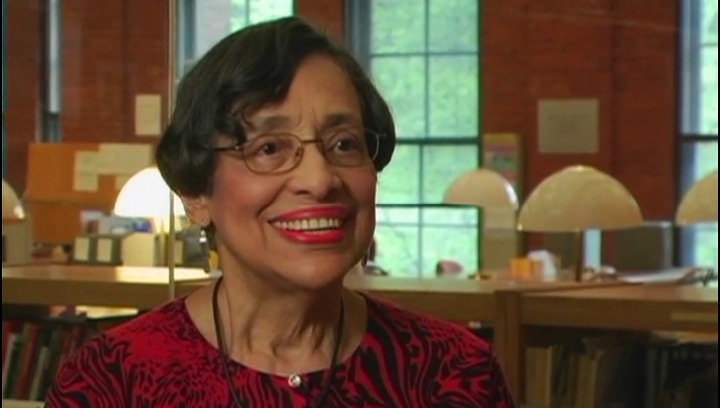
Alumnae Oral Histories
1950-1959
| Between 1950-1959, the major focus of the College was balancing the increasing conservative nature of the country, it’s passion for academic freedom: the basis of all interactions on campus. Benjamin Fletcher Wright, president during this decade, fought against the alumnae fueled “Discrimination in Giving” campaign which directed it’s gaze on faculty it identified as Communist sympathizers; he oversaw campus development: including the building of Cutter-Ziskind, the increase in the size of the student body—and need for more student housing; and changes to the curriculum. |
Full videos
Scroll down for a list of narrators and links to transcripts.
Narrators
Adele Baydin, Class of 1951 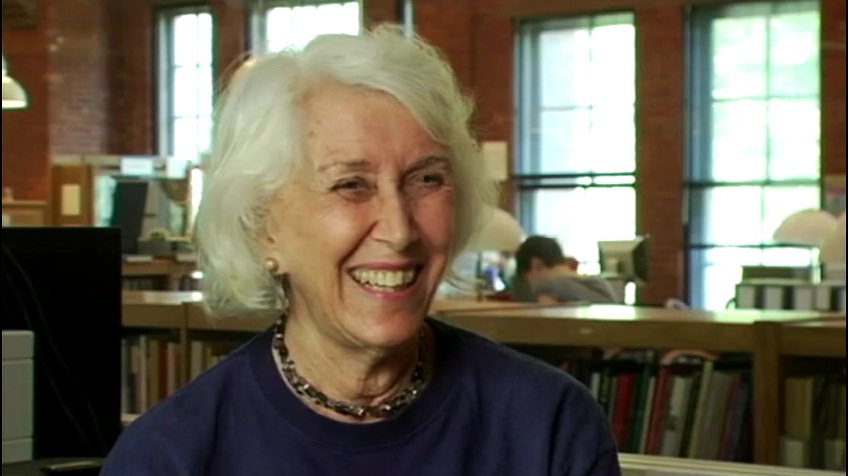
In this oral history, Adele Baydin discusses her experiences living in Chapin House, what it was like being a Jewish student at Smith, her travels in Europe, and why she decided to leave Smith after her sophomore year.
Access to this interview is restricted. If you would like to view the transcript, please email Nanci Young at nyoung@smith.edu.
 Ruth Leiter, Class of 1951
Ruth Leiter, Class of 1951
In this interview, Ruth “Boots” Leiter traces her time at Smith through her relationship with the French department. Having lived in the French house, and participated heavily in the department, her knowledge of the language has continued to serve Leiter to this day. The interview also highlights the social and political scenes at Smith during the late 1940s and early 1950s.
Nell Taylor, Class of 1951
In this oral history, Nell Cochrane Taylor discusses her experiences living in Lawrence House, her various roles of leadership on campus, issues of race and class, campus reactions to the Vietnam War, her position on the Board of Counselors and Board of Trustees, her experience receiving the John M. Greene award, her work with the Committee on African-American Studies, and her life after Smith.
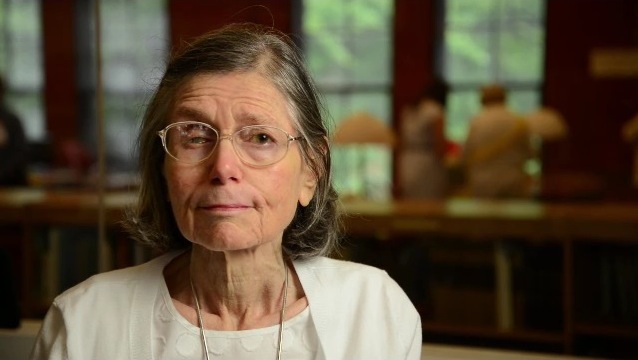 Lysbeth Stone, Class of 1953
Lysbeth Stone, Class of 1953
In this oral history, Lysbeth (Libby) Stone, who has only missed one reunion since graduating Smith in 1953, tells numerous stories from her Smith years, recalling that Sylvia Plath was in her Chaucer class and how evident it was that she was a unique talent.
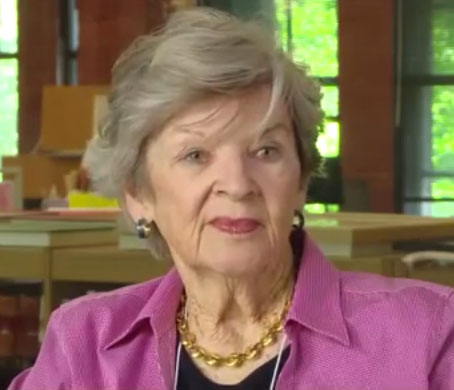 Mary Rose Caldwell Schlatter, Class of 1955
Mary Rose Caldwell Schlatter, Class of 1955
In this interview, Mary Rose Pattee Caldwell Schlatter discusses how her decision to attend Smith was greatly influenced by her mother’s experience at the college. She details her mother’s early college life and compares and contrasts their personal experiences. Schlatter details her academic choices and major as well as the social and dating life on campus in the 1950s. She discusses her post-Smith career, marriage and children, as well as her volunteer work and current activism.
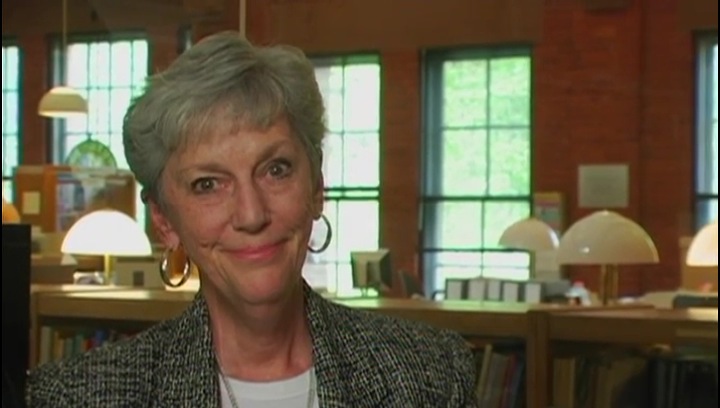 Sandra Baldonado, Class of 1956
Sandra Baldonado, Class of 1956
In this oral history, Sandy Baldonado describes the overall campus atmosphere, her experiences living in Hubbard House, participating in sports and theater, designing her own international relations major, her work at the CIA, and what a Smith education has meant to her.
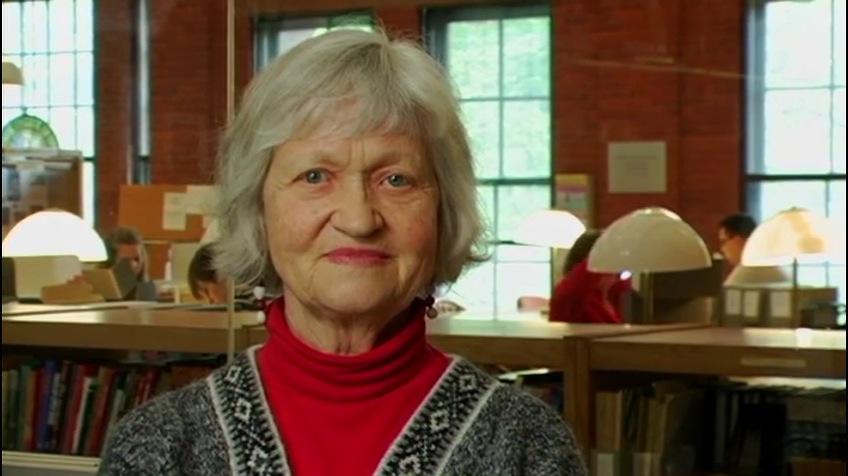 Sally Brush, Class of 1956
Sally Brush, Class of 1956
In this oral history, Sally Anderson Brush describes the campus atmosphere of Smith during the early 1950s, the lack of diversity and issues of race, and the expectation that one would marry. Brush also discusses her involvement with the crew team, the Christian Association, Judicial Board, her experiences as a religion major, her interactions with Gloria Steinem, and how Smith has impacted her life.
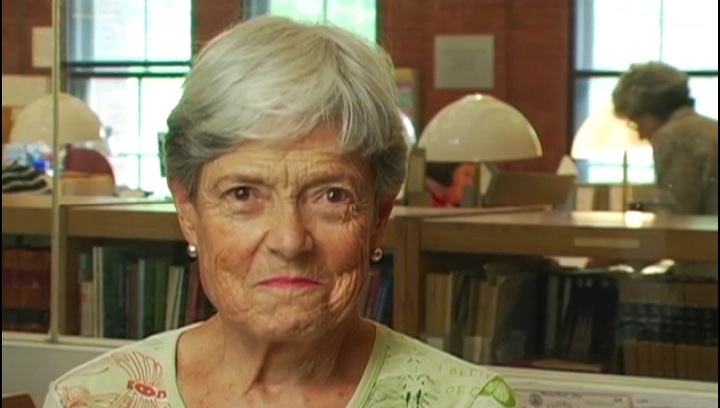 Ann Christenson, Class of 1956
Ann Christenson, Class of 1956
In this oral history, Ann Christensen discusses how Smith shaped her as a person, what it was like adjusting to Smith coming from the South, issues of race and diversity, her experiences living in Haven House, and who she has become since attending Smith.
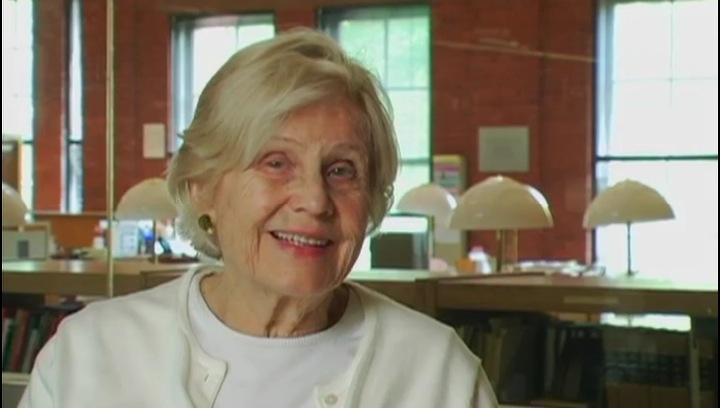 Katharine Esty, Class of 1956
Katharine Esty, Class of 1956
In this oral history, Katharine Esty describes the political and social atmosphere at Smith during the McCarthy era, her experiences living in Jordan House and the divide between Jewish and non-Jewish students within the house, student protests regarding the Hungarian Revolution, the dating scene and how she met her husband at Amherst College, the lack of racial diversity within the student body, the impact that Betty Friedan’s book The Feminine Mystique had on her, and her later work for UNICEF and as a psychotherapist.
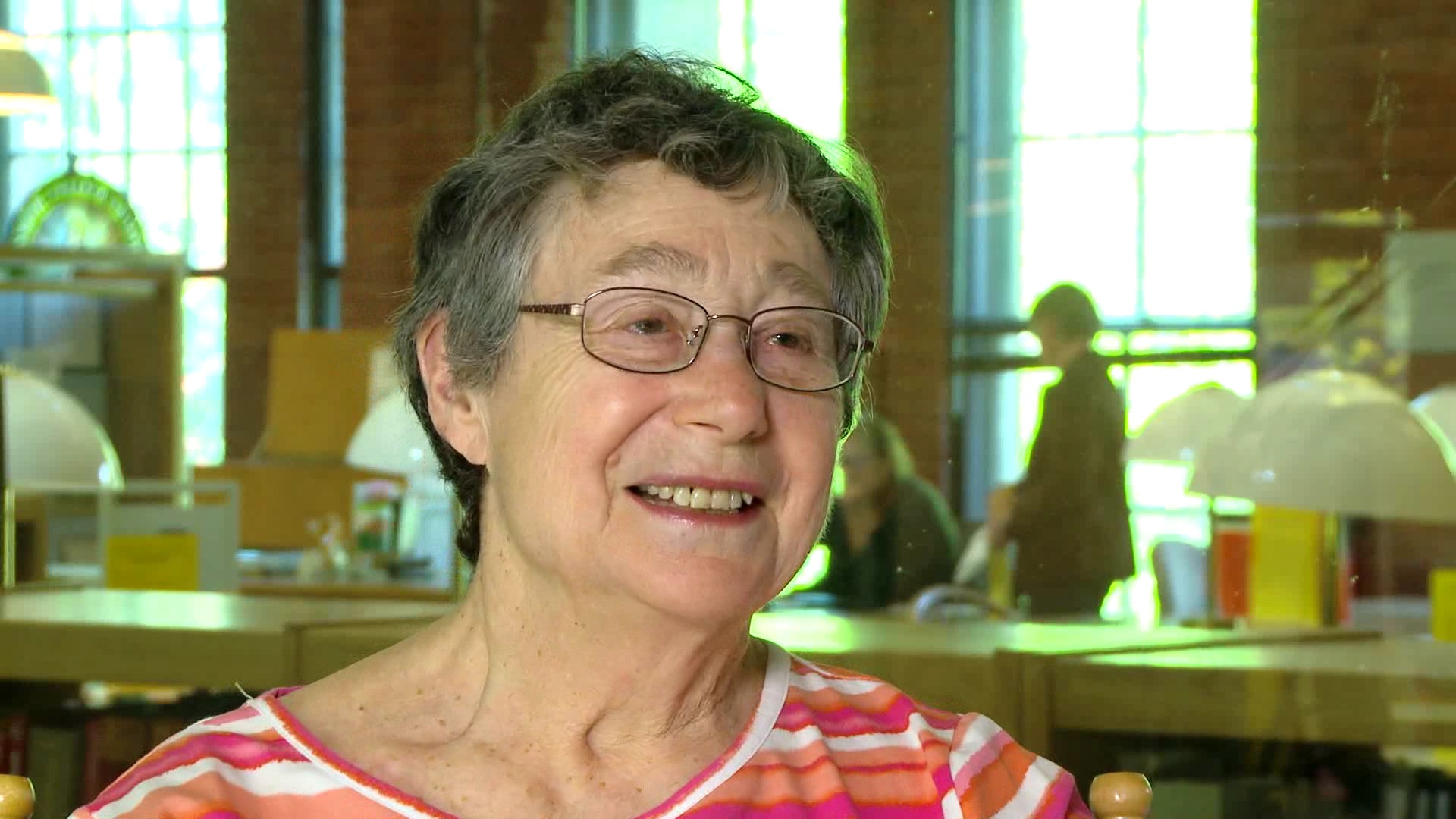 Daryl Maslow Hafter, Class of 1956
Daryl Maslow Hafter, Class of 1956
In this interview, Daryl Maslow Hafter talks about her religious background and finding a community at Smith. Hafter also reflects on favorite campus traditions, like going to Yale for Mountain Day. Hafter talks about her passion she developed at Smith for eighteenth-century French history, which she continued to study in graduate school.
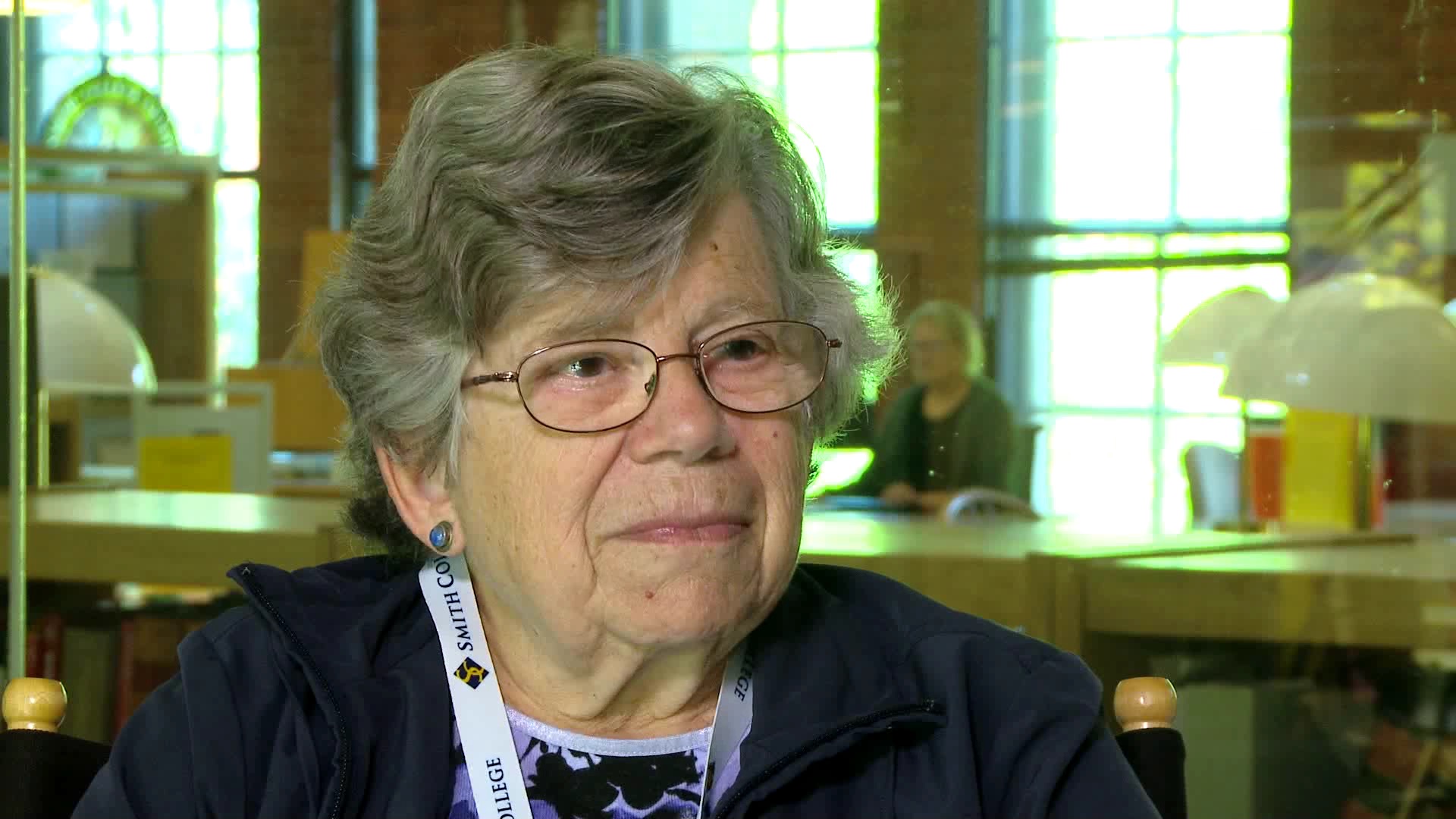 Linda Kaufman, Class of 1956
Linda Kaufman, Class of 1956
In this interview, Linda Kaufman remembers her transition to Smith from a rigorous independent high school. She talks about her experience as a history major, her time in different houses, serving as the treasurer of the student council, and the image of a “typical Smithie.” A high school history teacher, Kaufman reflects on being the voice for women and girls at her schools, a role that is deeply influenced by her time at Smith.
Access to this interview is restricted. If you would like to view the transcript, please email Nanci Young at nyoung@smith.edu
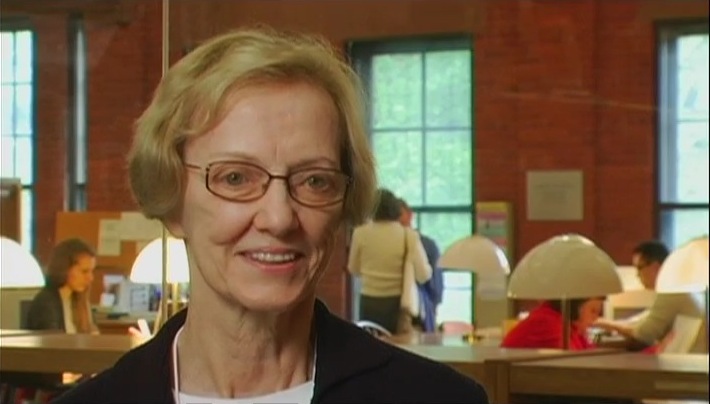 Jean Mooney, Class of 1956
Jean Mooney, Class of 1956
In this oral history, Jean Mooney discusses her work as an education major, issues of diversity and class on campus, and her career in education.
Group Interview with Members of the Class of 1957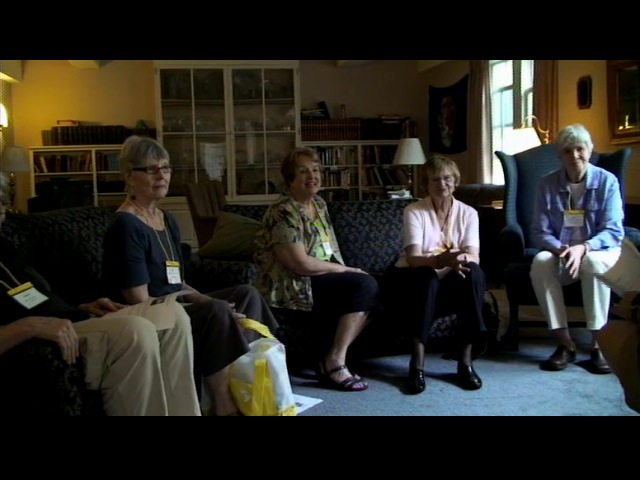
In this oral history, Gail Richards Blunt, Ann Loomis Jesse, Elizabeth Mayor, Joan Millspaugh, and Judy Oksner describe what it was like to be at Smith during the 1950s, their relationships with their housemothers, knitting during classes, the dating scene, expectations for them when they graduated in terms of marriage and work, and where their lives have taken them since leaving Smith.
Access to this interview is restricted. If you would like to view the transcript, please email Nanci Young at nyoung@smith.edu.
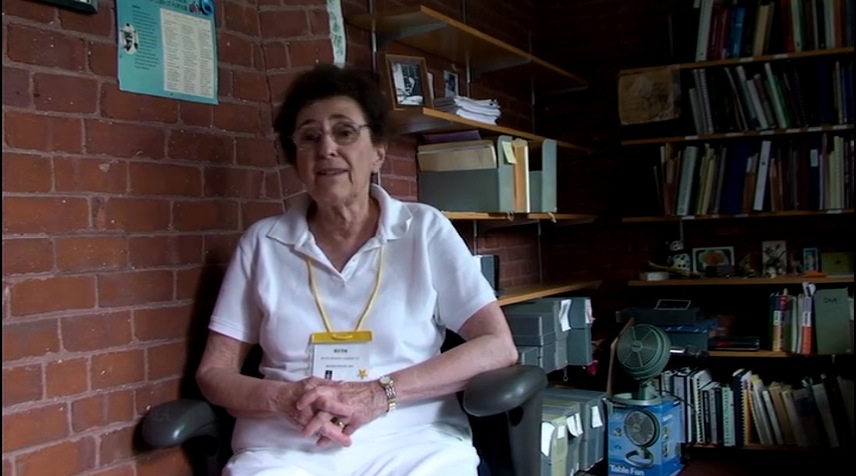 Ruth Cooper, Class of 1957
Ruth Cooper, Class of 1957
In this oral history, Ruth Cooper describes going to Smith in the mid-1950s and the social regulations that entailed, working hard academically, traditions like Ivy Day and after dinner coffee, and how Smith had changed when her daughter attended in the 1980s.
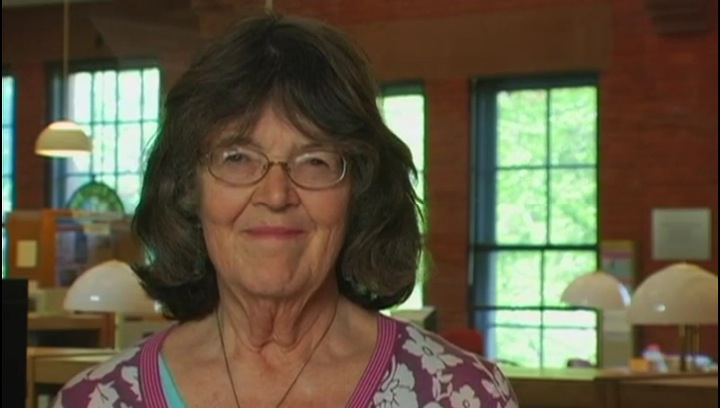 Judith Denison, Class of 1957
Judith Denison, Class of 1957
In this oral history, Judy Denison describes her experiences living in Lawrence House as a scholarship student, her work as a physics major, her internship at the CERN, and her education after Smith. Denison also discusses her marriage and subsequent divorce, her children and grandchildren, and her job with the Bureau of the Census and recent work with the Belize Education Project.
Natalie Field, Class of 1957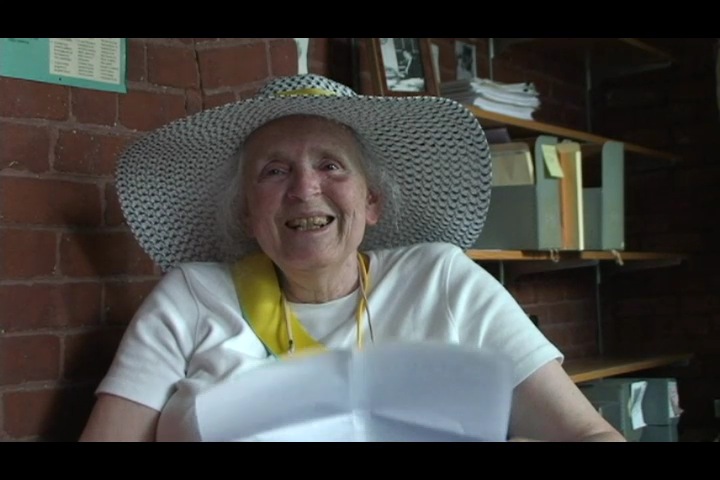
In this oral history, Natalie Field describes the tradition of singing at Smith at events like Rally Day and the senior show, and sings several Smith songs. She also describes going to chapel every Wednesday, watching TV in Davis, the kingsmen, being at Smith during the space race, and house social regulations. Throughout, Field laments the loss of Smith traditions.
Access to this interview is restricted. If you would like to view the transcript, please email Nanci Young at nyoung@smith.edu.
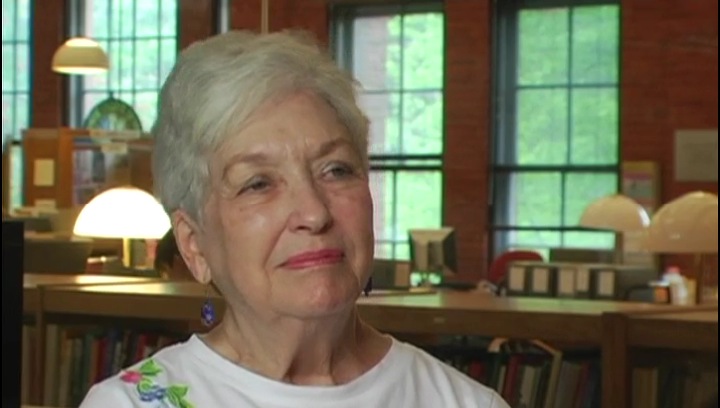 Marilyn Martin, Class of 1957
Marilyn Martin, Class of 1957
In this oral history, Marilyn Johnston Martin discusses living in Lawrence House, her social life, her relationship with Sylvia Plath, issues of class, her decision to leave after her sophomore year, and her life after Smith.
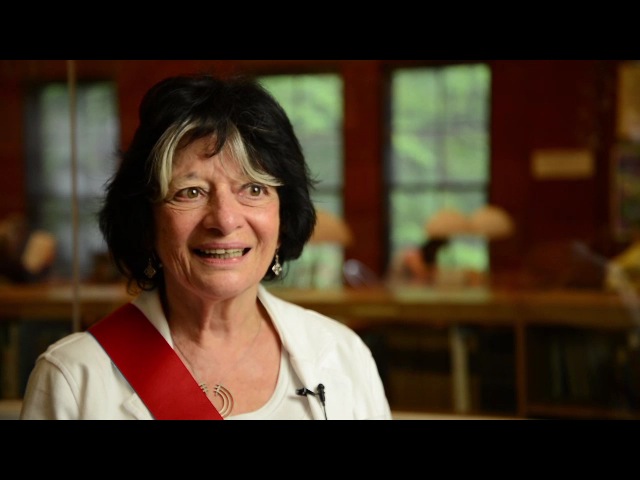 Ravelle Brickman, Class of 1958
Ravelle Brickman, Class of 1958
In this oral history Ravelle Brickman observes the changes she has seen on the Smith campus over the years, including the growing diversity of the student body. She reflects on her political activism at Smith and other highlights of her college years, including as a columnist for the Sophian and her role in founding of the Grecourt Review that published writers including Sylvia Plath.
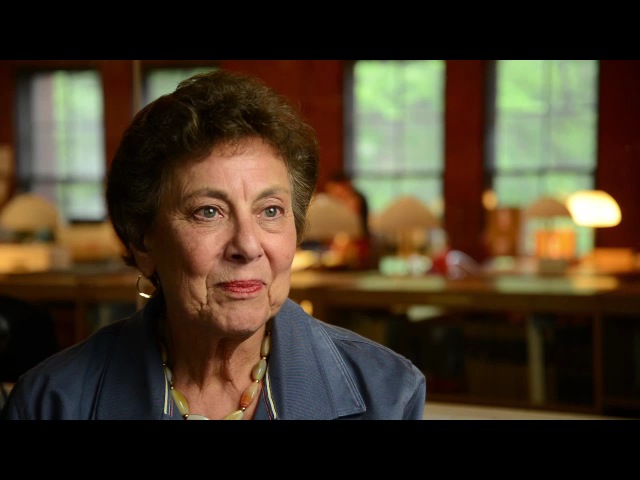 Ruth Budd, Class of 1958
Ruth Budd, Class of 1958
In this oral history, Ruth Budd recalls seeing Smith for the first time when she arrived alone as a first-year from Colorado. She speaks of the important role of women’s colleges and remembers her junior year abroad in Geneva in 1956, during the Hungarian Revolution, and the life-long friendship that began during that experience.
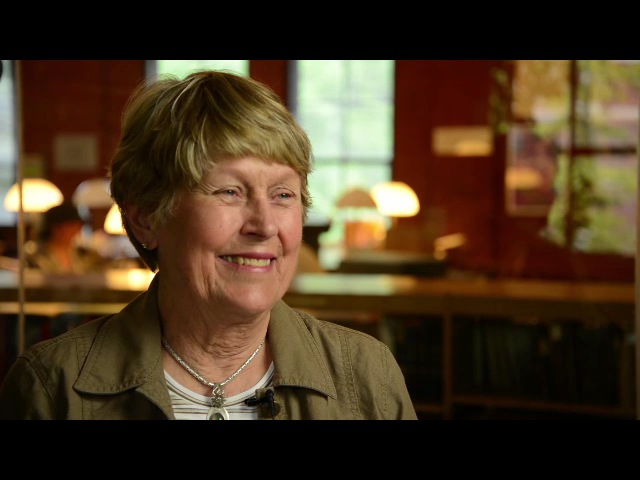 Elizabeth Campen, Class of 1958
Elizabeth Campen, Class of 1958
In this oral history, Elizabeth Campen reflects on the house culture at Smith which, in the 1950s, included house mothers. She recalls fondly traditions which no longer exist on campus, including Wednesday chapel. Campen talks about the importance of the legacy of a Smith education, the confidence that Smithies can do anything.
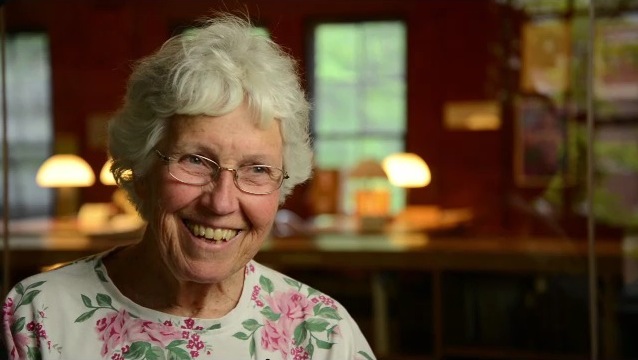 Carol Dwyer, Class of 1958
Carol Dwyer, Class of 1958
In this oral history, Carol Dwyer reflects on the changes she has seen take place at Smith, the importance of the friendships she made in her house, and the opportunities for travel and exploration that accompanied her junior year abroad.
Access to this interview is restricted. If you would like to view the transcript, please email Nanci Young at nyoung@smith.edu.
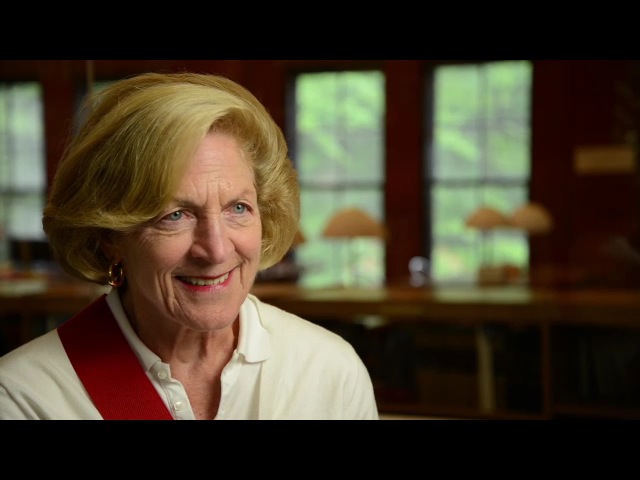 Susan Elliott, Class of 1958
Susan Elliott, Class of 1958
In this oral history, Susan Elliot, returning on the occasion of her 55th reunion, reflects on the importance of friendships formed through Smith’s house culture and remembers house activities including playing bridge after supper with housemates. She recalls a meeting with a Smith advisor that lead to her to a new recruitment program that IBM had launched for women and how that became the foundation for her future business success.
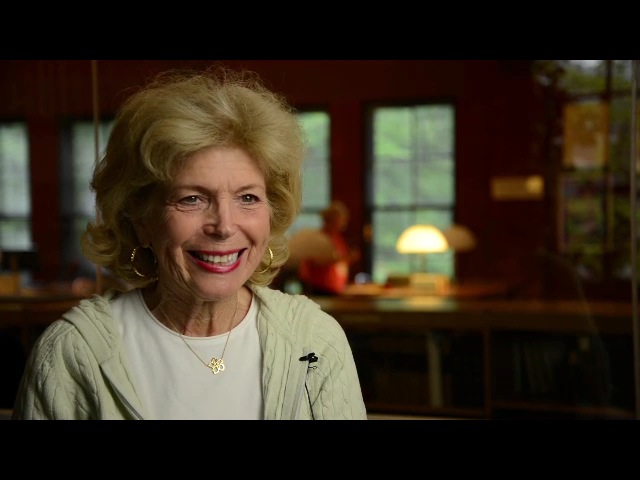 Rosalie Franks, Class of 1958
Rosalie Franks, Class of 1958
In this oral history, Rosalie Horne Franks talks about why she has attended every Smith reunion since graduation in 1958. She discusses her experience of entering Smith at 16 as well as her observations of how Smith has changed, including the growing diversity of the student body and the global nature of the curriculum and the student population.
Marlene Futterman, Class of 1958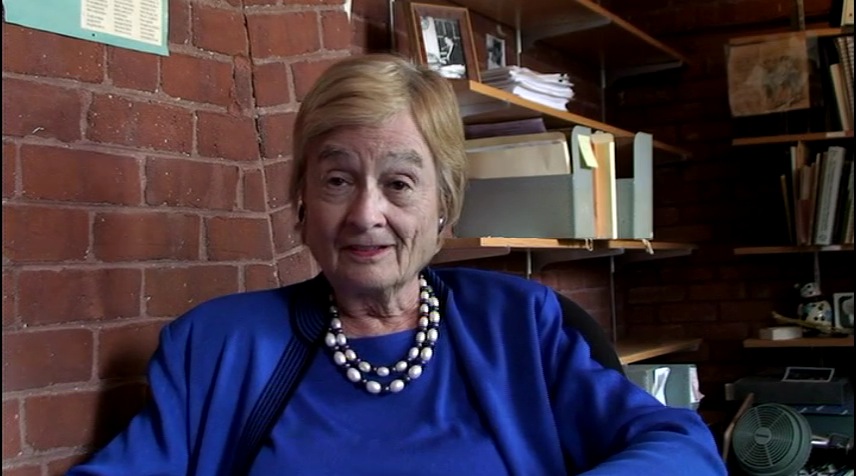
In this oral history, Marlene Futterman describes choosing Smith because of its study abroad programs, studying in Geneva and subsequently going into the Foreign Service after graduating, and gaining confidence at Smith.
Access to this interview is restricted. If you would like to view the transcript, please email Nanci Young at nyoung@smith.edu.
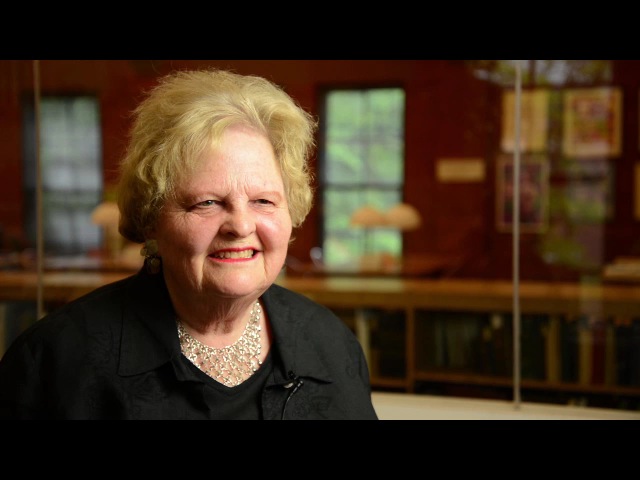 Jane Moffett, Class of 1958
Jane Moffett, Class of 1958
In this oral history, Jane Moffett recalls the extraordinary caliber of Smith’s art history department, which became the center of her life during her college years and beyond. She relates stories that shaped her worldview, including a conversation with Ruth Simmons that changed her life.
Eileen Ouellette, Class of 1958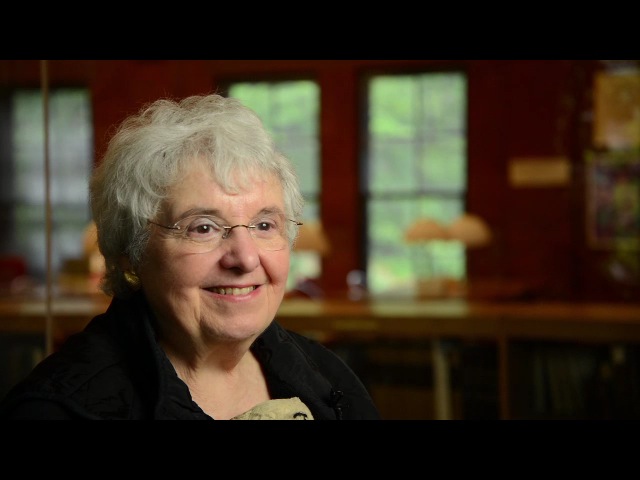
In this oral history, Dr. Eileen Ouellette speaks from the perspective of her 55th reunion week. She recalls the preparation she received at Smith which allowed her to go on to Harvard Medical School and a career that has combined medicine and social justice activism, including national advocacy on behalf of victims of Hurricane Katrina, particularly children.
Access to this interview is restricted. If you would like to view the transcript, please email Nanci Young at nyoung@smith.edu.

